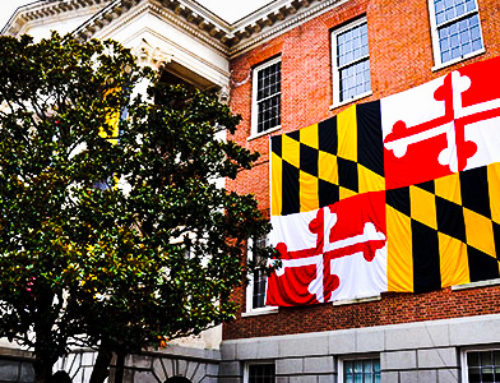View by Topic
Recent Articles
-
EPA Transmits California Electric Vehicle Waivers to Congress for RepealSaturday, February 22nd, 2025
-
SEC Reverses Course on Defending its Climate Related Disclosure RuleSaturday, February 15th, 2025
-
Reliance Letters: An Essential Part of Phase 1 Environmental Site AssessmentsSaturday, February 8th, 2025
-
Reverse Greenwashing: The Battle Over ExxonMobil’s RecyclingSaturday, February 1st, 2025
-
Anatomy of an Executive Order: Stopping the WindSaturday, January 25th, 2025
View by Month/Year
“Green Building Law Update” Headlines
Recent Articles & News from
Stuart Kaplow’s blog
at GreenBuildingLawUpdate.com
- EPA Moves to Overturn California’s Electric Vehicle Emission Standards February 23, 2025
- SEC Climate Disclosure Rule: A Dramatic Reversal Under Trump February 16, 2025
- Reliance Letters: An Essential Part of Phase 1 Environmental Site Assessments February 9, 2025
- Reverse Greenwashing: The Battle Over ExxonMobil’s Recycling February 2, 2025
Subscribe to the Green Building Law Update!
Stuart Kaplow brings his expertise and extensive experience to the table with his unique digital publication, "Green Building Law Update". Subscribers receive regular updates to keep them informed about important issues surrounding Environmental Law, Green Building & Real Estate Law, as well as the emerging demand for Environmental Social Governance (ESG).
Get fresh content through the lense of Stuart Kaplow's cutting-edge expertise, innovative commentary and insider perspective. Don't miss another issue! Subscribe below.
LLC’s More Advantageous Than Ever
Two recent legislative acts will make the use of LLC’s, in Maryland, more advantageous than ever.
The LLC is an unincorporated form of business organization similar to a partnership. The LLC possesses a liability shield which protects its owners from liability to the same extent that stockholders of a corporation are insulated from its debts and obligations.
When properly structured, the LLC will be treated as a partnership for Federal and Maryland income tax purposes.
As a pass-through entity for tax purposes, the LLC is generally more advantageous for closely held businesses than the S corporation (with its cumbersome and artificial restrictions). The conversion of an existing general partnership, limited partnership, C corporation or S corporation into an LLC requires a great deal of care. If the entity owns real estate, the required retitling of the property may be subject to transfer and recordation taxes.
While there have in the past been some exemptions from transfer and recordation taxes, recently enacted HB 671 provides that an instrument of writing that transfers title to real property from a predecessor entity, which includes a general partnership, a limited partner ship, a limited liability limited partnership, a joint venture, and a proprietorship comprised of one or more individuals involved principally in buying, selling, leasing, or managing real property, to a limited liability company, is not subject to recordation tax or state or county transfer tax.
To be exempt, the members of the predecessor entity must be identical to the members of the LLC; each member’s allocation of profits and losses must be identical; and, the predecessor entity must be dissolved.
The General Assembly also passed the Limited Liability Company Reform Act of 1997, HB 309, which makes Maryland’s LLC statute among the most progressive in the nation.
The bill provides that one person may form an LLC, correcting a situation that required two people for formation, but then allowed one of the two to resign. This seemingly innocuous change is significant in this era of UPREITs that often have an operating partnership as the sole LLC member.
An LLC may now also have perpetual existence, although existence may be limited to a specified time, if such is set forth in the articles of organization.
The bill also provides that a general partnership, limited partnership, or a sole proprietorship may convert to an LLC simply by filing articles of organization.
The requirement that an amendment to an operating agreement must be signed is repealed when it is adopted by unanimous consent. And the requirement that confession of judgment or submission of a claim to arbitration requires unanimous consent has also been repealed.
And the bill clarifies that certain conveyances of partnership property are not fraudulent conveyances under the Maryland Act.
Each of these changes is significant in that Maryland’s LLC Act is now more user friendly than ever, offering more options for Maryland businesses.









